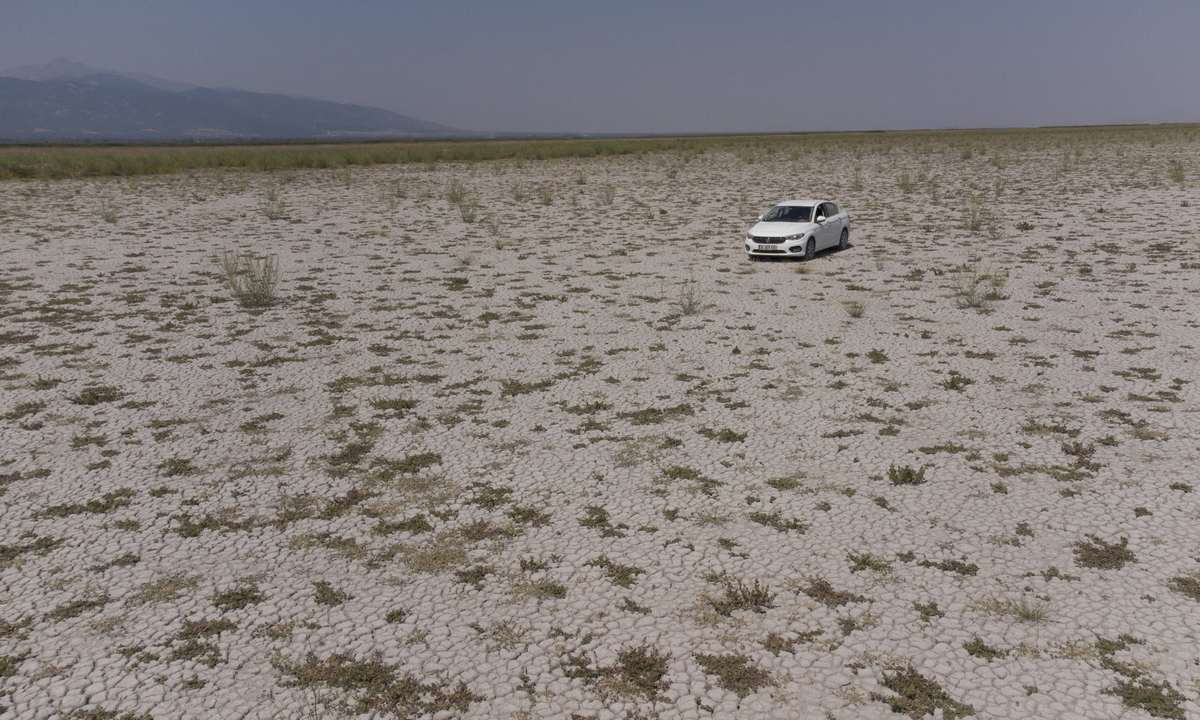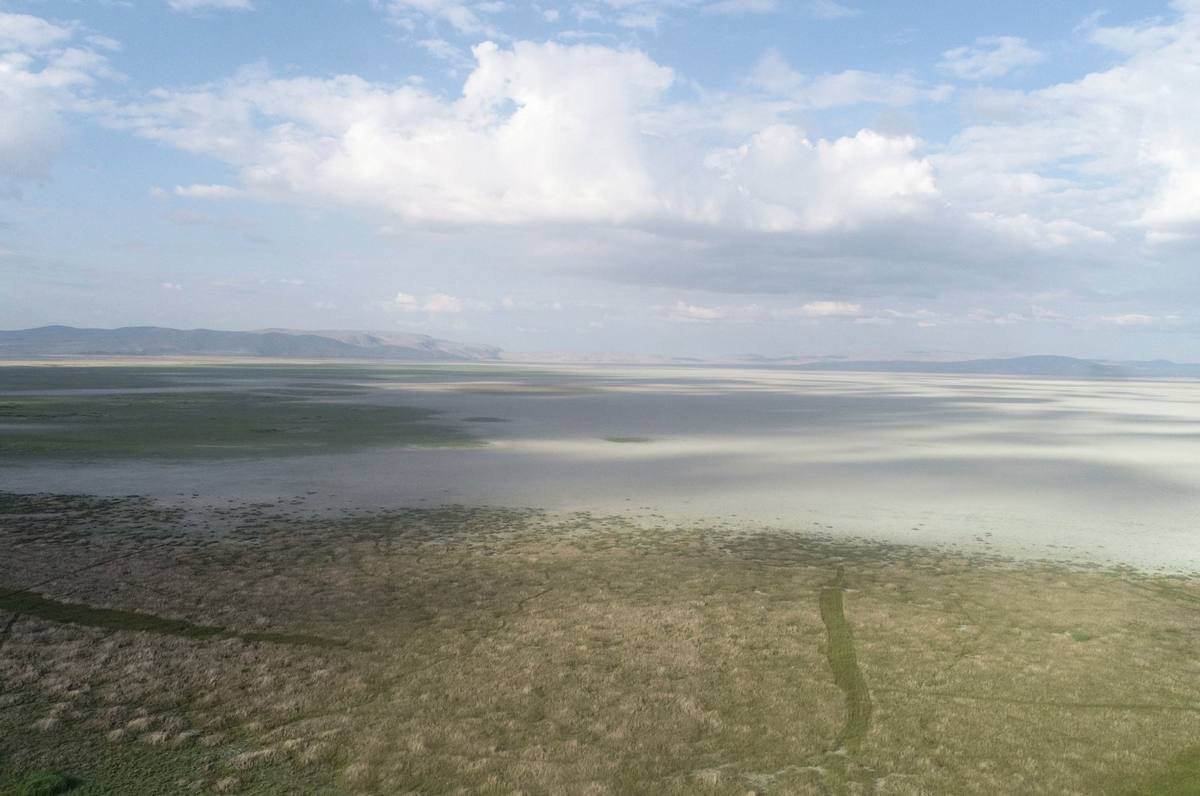A large lake in central Turkey in the province of Konya has completely dried up due to global warming and irresponsible irrigation of agriculture, experts said on Sunday, making the bottom of the lake so dry that even cars could easily drive on it, Sabah newspaper writes.
Lake Aksehir, which was an important source of fresh water for the neighboring provinces and was up to six meters deep (the lake stretched over an area of 350 square kilometers), today is left without a drop of water.

According to Tahir Nalbantchilar, a professor of geology at Konya University, the lake was an important body of water that supported the environment and the economy, as well as several species of plants and animals.
In an interview with the Demirioren news agency, he noted the problems of hundreds of fishermen who lost their jobs, as well as animals looking for a place to graze.
According to Nalbantchilar, in the past the lake had dry periods when it was in danger of drying out, but he always managed to recover.
“But we can see the effects of climate change and global warming on Lake Aksehir. It is supported by rainfall and other sources of water that flow into the lake. But climate change was not the only cause. Small artificial ponds created to irrigate farmland. the construction of fences for streams and various buildings drained the small streams that fed the lake, “says Nalbantchilar.

He named local wells as another reason for the destruction of the lake. According to him, the wells became deeper and deeper – at a total depth of 20 meters over the years, they reached 150 meters, writes BGNES.
Enumerating the steps needed to revive the lake, the professor expressed doubts that it may be too late.

